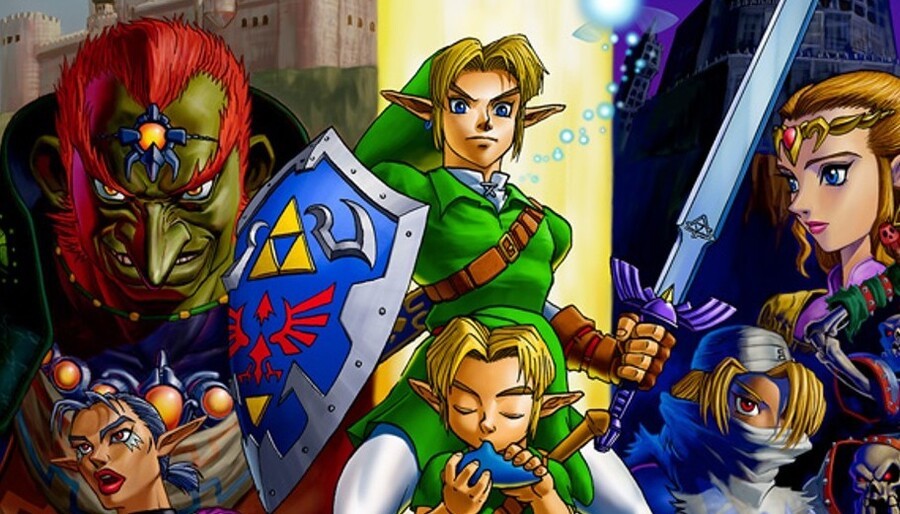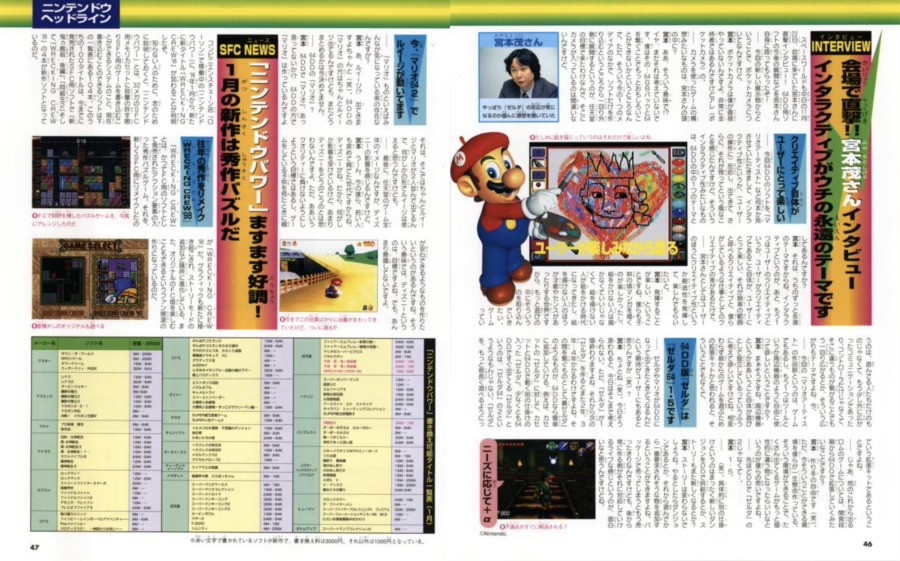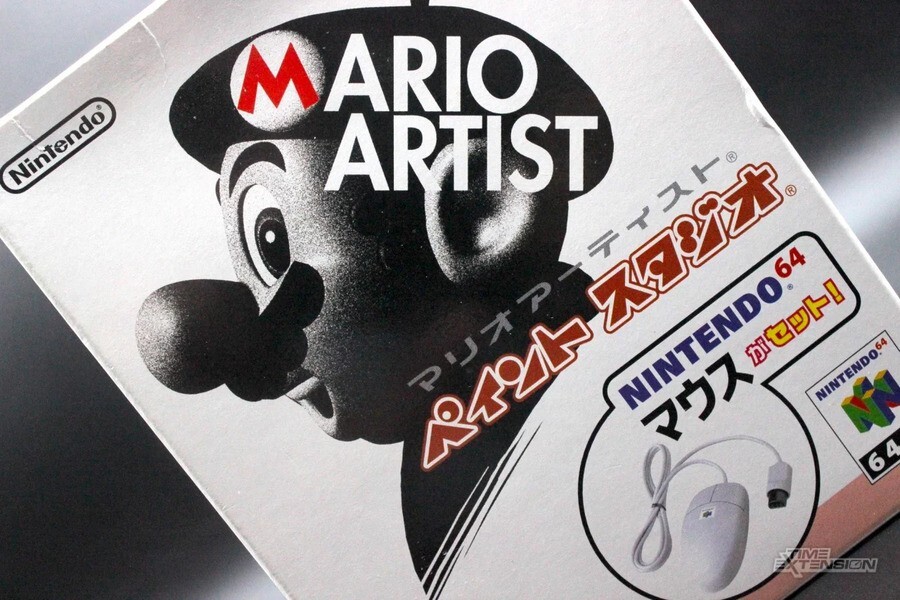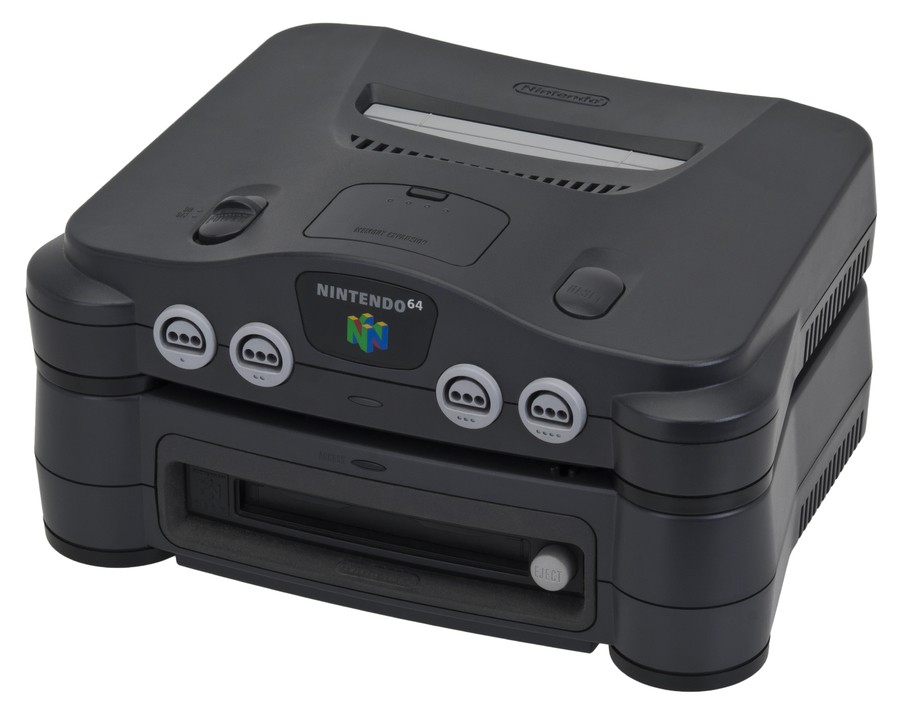
As mentioned yesterday in our news article going over some of the highlights from Hiroshi Yamauchi's 1997 Spaceworld keynote speech, we sometimes don't have the opportunity to include everything we get translated while we're in the process of putting together a particular story.
So the result of this is that we can often end up with a lot of interesting material just sitting around in a folder somewhere waiting to be forgotten about when it could potentially be of some interest to either readers and other journalists or researchers hoping to look into similar topics.
A case in point is this interview from issue 29 of Famimaga 64 (published in February 1998) that took place between a Japanese reporter and Shigeru Miyamoto at Spaceworld 1997, which we had translated by the Japanese-to-English translator Liz Bushouse for our Mario Artist article.

We were previously only able to use two excerpts of this interview in that feature and a separate news story on Super Mario 64, but have now decided to publish the entire exchange below, including the sections where Miyamoto discusses the potential of releasing an expanded version of The Legend of Zelda: Ocarina of Time for the 64DD (which was eventually called Zelda Ura and later cancelled) and where he comment on comparisons made between Disney and Nintendo. Enjoy!
Q. We'd like to ask you about the newest product on display: the Gameboy Camera.
Miyamoto: I'm not working directly on the Gameboy Camera, but I am a big supporter of it.
Q. How do you think games will take advantage of this camera?
Miyamoto: Oh, is that what you meant? I haven't thought too much about it yet. I, uh...I think more interesting things can probably be done with connecting the Transfer Pak and the 64. But Nintendo's goal has been to expand to developing other things, instead of just one kind of media software, so that's where the camera fits in.
Q. We've been able to see a number of games for the 64DD, including Mario Artist. Stuff that emphasizes interactivity, or reacting to the player's input and creating a lasting effect based on that. Is that kind of interactivity one of the focal points for the 64DD?
Miyamoto: Well, interactivity has always been our key focus, really. And also, not just letting the player create, but letting the player enjoy the act of creating itself. That's just the difference between what the entertainment industry as a whole calls "creation/creativity" and the kind of "creation/creativity" present in the work we do.

Q. So you want to let players have fun by helping them express their creativity.
Miyamoto: Yeah, it's all about that ability to express yourself in a way that's fun. For example, I enjoyed drawing comics when I was a kid. And it used to be that people who couldn't draw just didn't pursue drawing, but now even those people can draw, and in fact, it's those kinds of people who possess great talent and artistic sense, so I want to incorporate that into play. Games aren't just for the people who play them. Right now it's more about expanding communication, and not just using controllers, but connecting with different things. That's also one of our key focuses: expansion.
Q. So you want titles like Mario Artist that are games, but can also be freely used as tools or peripherals?
Miyamoto: Yeah, more or less. Though rather than "peripherals" I'd prefer they'd be thought of as independent methods of play. They're not supposed to be the same kind of game expansion kits that we've had for a while.
Q. I think a lot of players are curious about what Zelda or Mario might be like on the 64DD. (laughs)
Miyamoto: Yeah, probably. (laughs) But we're not in the position to think about that right now. Once we finish one Zelda game, it then takes us two, three, or even four years to make the next one. To keep things going in the meantime, we can easily release something like a Second Quest version on the 64DD. For example, for a cartridge Zelda, we could make a Zelda that has some separate sort of feature that works with the cartridge and the 64DD. At the very least, don't expect something like the sequel to Zelda 64 to come out on the 64DD immediately. More like an expansion kit so that you can enjoy playing Zelda for even longer.

Q. So can we expect something similar for other games, too? That they'd get expansions on the 64DD?
Miyamoto: That depends on the people making the game. (laughs) But in any case, we are doing everything we can to create that kind of environment. That way, more games can have the opportunity to transform into something unique. And that's what we want.
Q. So like you said, not a full Zelda 2 on the DD...
Miyamoto: More like Zelda 1.5.
Q. (laughs) So in more concrete terms, when you say "separate features" do you mean like completely new dungeons for the DD or additional story or things like that?
Miyamoto: I don't think there'd be any changes or additions to the story. If we did do something, it'd be like a dungeon or something like that. Or we could add the most requested feature that people have after playing the game. Usually, once a game is packaged and released, that's it. We can't do anything more to it. But I think it would be interesting if the creators could continue to address things afterward, sort of like live updates.
Q. Speaking of Mario, I think a lot of people are curious about what's going on with his little brother.
Miyamoto: Oh, Luigi?! Rest assured, he'll be there. (laughs) Luigi will definitely be in the 64DD version of Mario, but we haven't quite decided yet what we're going to do with him.
Q. There's going to be a 64DD version of Mario?
Miyamoto: Oh, has that not been mentioned?! Yeah, we're making a Mario for the 64DD. And both Luigi and Mario are going to be in it. I think Luigi should be able to be used in one way or another.
Q. Finally, about the impression Nintendo games leave as a whole. It feels like they've been inspired by Disney.
Miyamoto: Hmm... Well a lot of us, younger folks included, grew up with Disney, so yeah. We've probably been influenced by them somehow, but it's not like we've consciously drawn from their works. I think it's just that our goal is to create the same kind of quality and also to create games that parents can feel safe letting their kids play. So I guess you could say we aspire to be like Disney in that sense. But again, it's not really a conscious thing.




